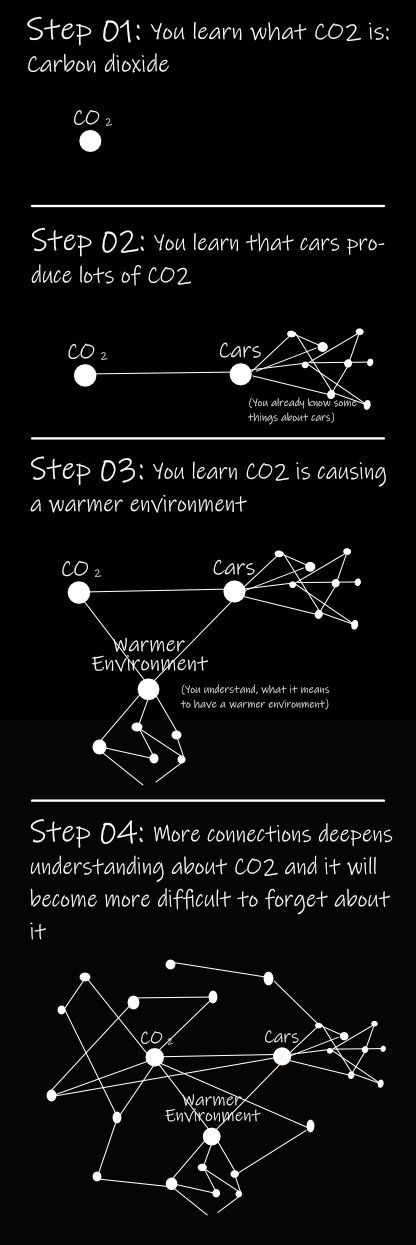I had a wrong learning method for too many years
Learn about the only concept you need to make learning stick with you.
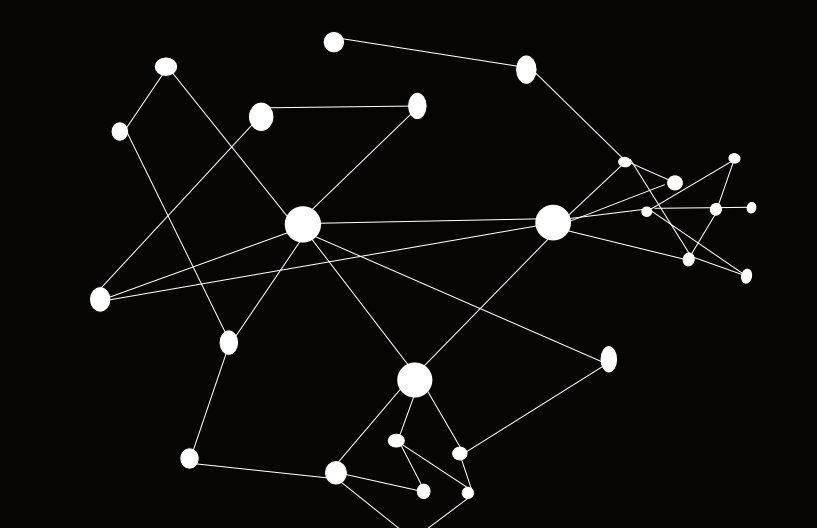
When I applied for university, I thought that I will just be learning stuff which is interesting for me, unlike in school where I was kind of forced to learn almost every subject they offered. I hoped university would lead to me learning with more motivation and with better grades than in school. But this is not what happened.
Even though I chose my overall study, I had to participate in subjects which, in my opinion, didn't provide any value to my future life. For those subjects, I wrote down everything from the course slides into bullet points to memorize the whole content, so that I could get good grades and pass the exams. But these were also the exams which I failed on my first try, even though I put in lots of hours in learning.
Last year, I stumbled upon the YouTube channel of Justin Sung. He talks about how to learn effectively, so that you do not waste many hours sitting in front of your desk with inefficient studying. There, I realised, it's not about how much time you spend with learning, but it's about how well you spend your time with learning and how you include the topics of your study into your life.
Justin Sung talks about having to encode the subjects which you want to learn to get better results. But what does encoding mean? From my understanding, you could say encoding equals understanding. He offers a course on his website about learning and encoding. But I didn't want to spend an enormous amount of money on a course. I thought about a different way to learn about it. That's when I found the book "How We Learn" by Benedict Carey on Blinkist. After reading it, I started listening to the full audiobook to get a deeper understanding. Even though I am not enrolled in the University anymore, I still use up some of my time every week to learn new stuff. This book made me realize why I am learning now much more effectively than during my university time.
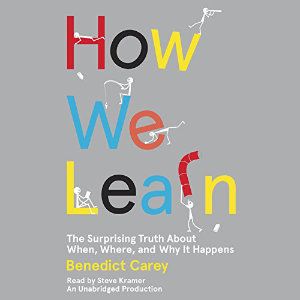
In this post, I will present to you the key concept of what it takes to make it more difficult for your brain to forget information. There are multiple methods of how to achieve it. When you understand the concept, then you can come up with your own plan on making your studies stick.
The key principle for not forgetting
The key principle for not forgetting a topic is to understand it and to connect the subject you want to remember to lots of other things. To explain it, I have created this example here:
Example
Let's say you don't know what CO2 is. In step 01, you would learn that CO2 is carbon dioxide. This information alone will make you most likely forget about it the next day. Imagine you read this information every day for over a month. After a year, you will have forgotten about it, because there is nothing, which helps you to remember what CO2 is.
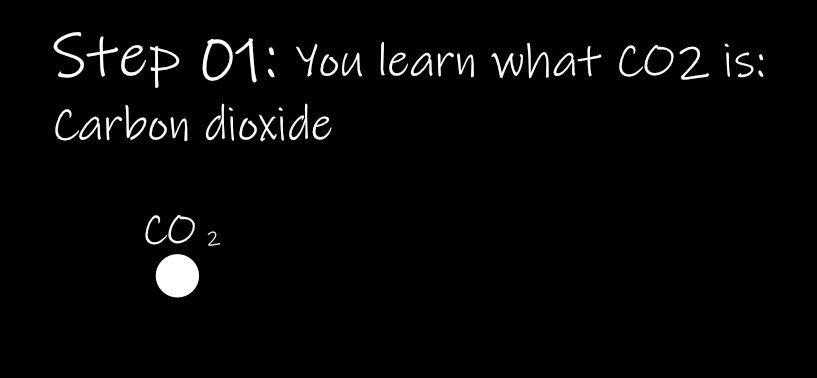
In step 02, you learn cars produce lots of CO2. The connection between CO2 and cars is now created. When you think about CO2 now, you might think about cars as well, but it doesn't have to be vice versa, because your mind can think about the other connections which you have already made with cars. This connection alone will not prevent you from forgetting this information. But it will take more to forget about it than in step 01.
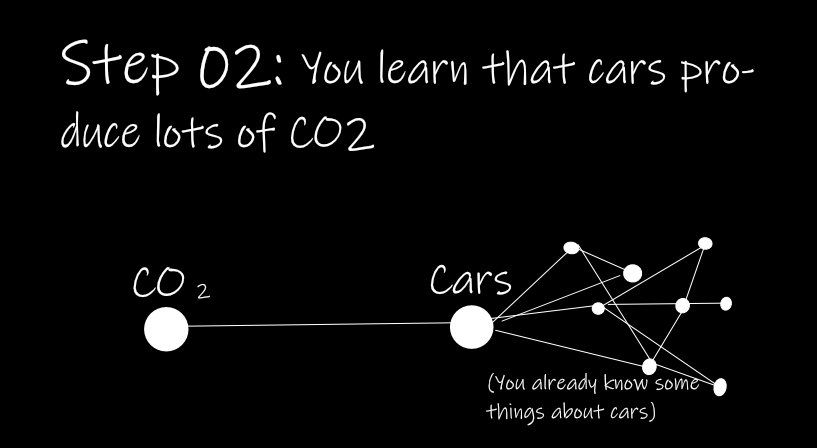
In step 03, you learn CO2 is causing a warmer environment. For the example's sake, let's say you already understand the consequences of having a warmer environment.
CO2 is already connected to cars and now it got a new connection to warmer environment. The connection between cars and CO2 makes us realise cars are causing a warmer environment. A connection between cars and warmer environment is built.
You have now more possibilities to think about CO2 than compared to step 01 and step 02.
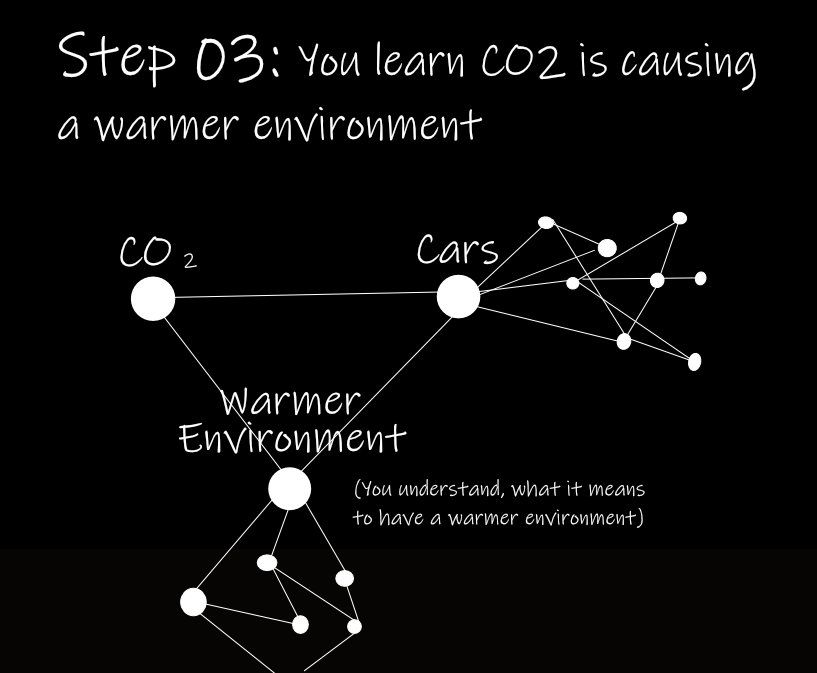
In step 04, you create more connections, which deepens the understanding about CO2. It will be now harder to forget about it.
Forgetting means you will forget about the subject and all the connections to other subjects. When there are already lots of connections, it will become more difficult to forget that subject.
But it is still possible to forget about why one subject is connected to another subject. Hence, the connection weakens and the probability increases that you will forget about one of those two subjects as well. To keep the connections alive, you have to do things which make you remember them e.g. talking, reading, watching news about it or through experiencing it.
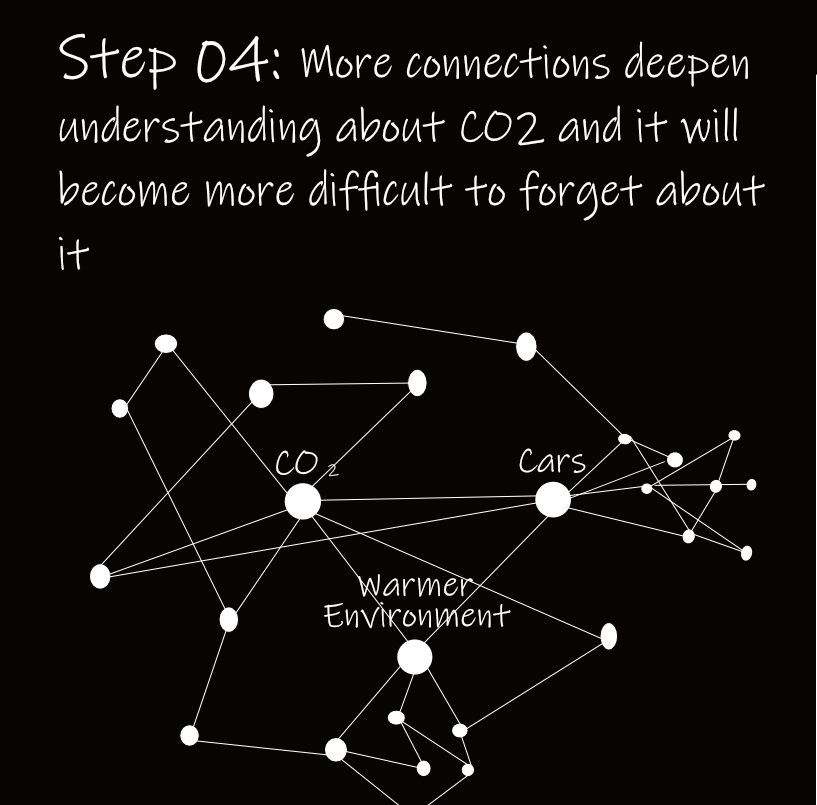
Conclusion
In summary, it means that you have to come up with ways to connect your learning with other subjects. Connections happen through understanding the context between those subjects. But to keep the connections alive, get in touch with the information regularly. When you engage with the topic (e.g. talking about it), the connection will be stronger than after just reading or listening about it.
I believe it is easier to make new connections and to remember them when you are learning stuff which actually interest you. Because then, you are more likely to deepen the understanding of a topic. In my case, I like to learn stuff, which I can apply to my life. So, learning about programming, productivity and psychology is for me easier than learning about car mechanics or the biological procedures of plants. Regarding car mechanics and biological procedures, these two subjects would be difficult for me to learn, because I don't have an inner interest to keep learning about them. I would also not talk about these topics with my friends.
Let's look at how it is to learn for a test. When you are interested in the subject, you try more to understand everything and you might even talk about it or watch YouTube videos regarding those topics. But when the subject is not interesting, then you will most likely just try to go through the same information again and again and you will not talk about it with your friends. This procedure will prevent you from creating a bigger knowledge base for this topic.
So next time you want to learn a new topic or skill, consider investing your time with variable sources in different ways with this topic or skill, so that you understand the concept and create an expertise regarding this topic.
If you want to learn a language, for example, here are possible methods you can try to learn more effectively:
- Learn every day vocabulary
- Watch TV-shows and movies in that language
- Listen to the music in that language
- Learn the grammar by watching YouTube videos
- etc.
You just have to surround yourself consequently with the topic you want to learn by using different methods and you will master it one day.
Here is the full example as one picture, just in case you want to use it:
